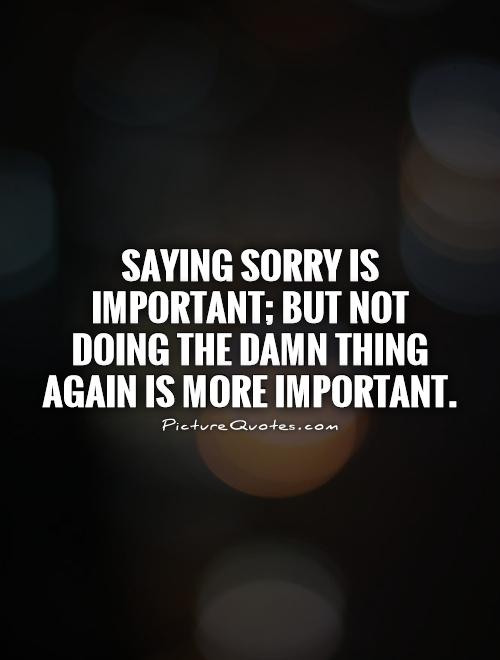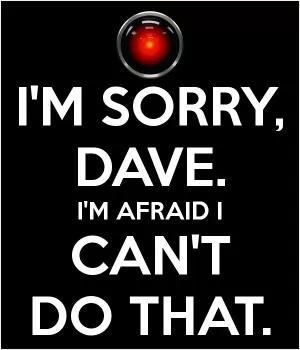Saying sorry is important; but not doing the damn thing again is more important

Saying sorry is important; but not doing the damn thing again is more important
Saying sorry is a crucial aspect of human relationships. It shows humility, empathy, and a willingness to take responsibility for one's actions. However, simply uttering the words "I'm sorry" is not enough. It is equally important to follow through with actions that demonstrate genuine remorse and a commitment to change.Apologizing is the first step in repairing a damaged relationship or rectifying a mistake. It acknowledges the hurt or harm caused and opens the door to communication and reconciliation. But if the behavior that prompted the apology is repeated, the words lose their meaning and the apology becomes empty and insincere.
Actions speak louder than words. It is not enough to apologize for hurting someone if the same hurtful behavior is repeated. This shows a lack of respect for the other person's feelings and a disregard for the impact of one's actions. It erodes trust and credibility, making future apologies less meaningful and less likely to be accepted.
Repeated apologies without change can also be manipulative. It can be a way to placate the other person without actually addressing the underlying issue. This can create a cycle of hurt and apology that perpetuates the problem rather than resolving it.












 Friendship Quotes
Friendship Quotes Love Quotes
Love Quotes Life Quotes
Life Quotes Funny Quotes
Funny Quotes Motivational Quotes
Motivational Quotes Inspirational Quotes
Inspirational Quotes